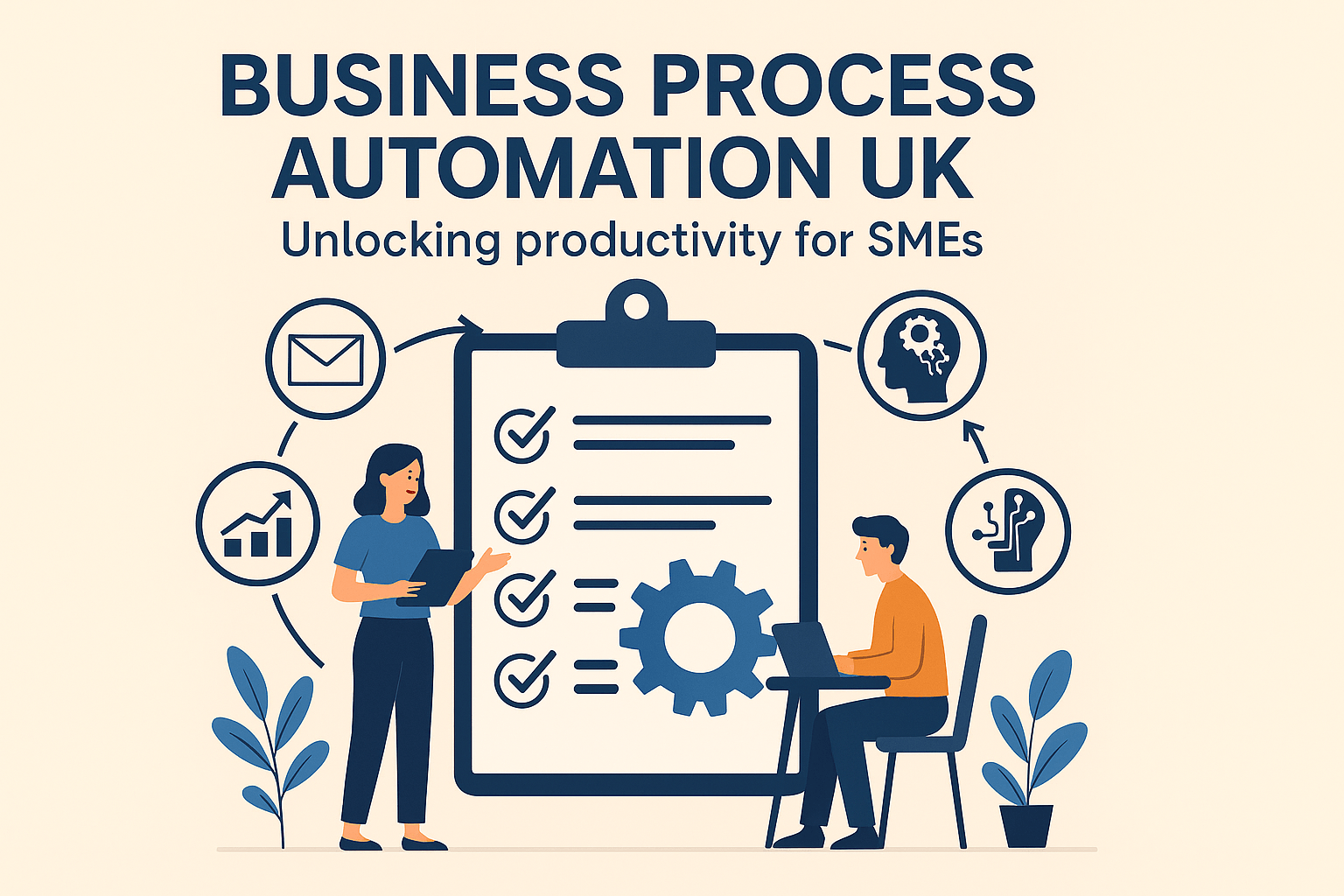For many small and medium-sized enterprises (SMEs), day-to-day operations can feel like a constant juggling act. Between managing employees, serving customers, and staying on top of administrative tasks, chaos often becomes the norm. But what if there was a way to bring order to the chaos? Artificial intelligence (AI) offers a transformative solution, helping SMEs streamline operations, improve efficiency, and achieve clarity in their workflows.
The Organisational Challenges of SMEs
Small businesses face unique challenges that can hinder their growth and efficiency:
- Limited Resources: SMEs often lack the manpower or budget to tackle every task effectively.
- Time-Consuming Processes: Repetitive tasks, such as manual data entry or scheduling, eat into valuable time.
- Fragmented Systems: Disconnected tools and processes can lead to inefficiencies and errors.
These challenges make it difficult for SMEs to focus on strategic growth. This is where AI comes in.
How AI Brings Clarity to Operations
AI technologies are designed to optimise and simplify processes, making them ideal for small businesses looking to enhance their operations. Here are some key ways AI can help:
1. Task Automation
AI tools can automate repetitive and time-consuming tasks, such as:
- Invoicing: Automated systems can generate, send, and track invoices, reducing administrative burdens.
- Inventory Management: AI-powered tools can monitor stock levels, predict demand, and reorder supplies automatically.
- Email Management: Smart email filters and AI assistants can prioritise important messages and draft responses.
By eliminating these manual processes, business owners can focus on higher-value activities.
2. Improved Decision-Making
AI provides actionable insights by analysing vast amounts of data. For instance:
- Sales Forecasting: AI tools can predict future trends based on historical sales data.
- Customer Behaviour Analysis: Businesses can better understand customer preferences, enabling personalised marketing strategies.
- Operational Efficiency Metrics: AI dashboards offer real-time visibility into performance metrics, helping identify areas for improvement.
3. Enhanced Customer Support
AI-powered chatbots and virtual assistants ensure customer queries are addressed promptly, even outside business hours. For example:
- A chatbot can handle up to 80% of common customer inquiries, freeing up staff for complex issues.
- AI systems can analyse customer feedback to identify recurring issues and improve service quality.
4. Seamless Workflow Integration
AI platforms integrate with existing tools to create a cohesive system, ensuring all departments work together efficiently. For example, a cloud-based AI solution can link accounting software with customer relationship management (CRM) tools, streamlining information flow.
Real-World Success Story
A family-run catering business in Manchester struggled with order management and scheduling conflicts. After adopting an AI-driven scheduling tool, they:
- Reduced scheduling errors by 90%.
- Saved an average of 15 hours per week on administrative tasks.
- Improved customer satisfaction by ensuring timely deliveries.
This newfound clarity allowed the business to expand its services and boost revenue.
Getting Started with AI
Adopting AI doesn’t have to be overwhelming. Follow these steps to get started:
- Identify Pain Points: Focus on areas where inefficiencies or errors are most common.
- Research Solutions: Explore AI tools tailored to your industry and business size.
- Start Small: Implement AI in one area before scaling to other operations.
- Seek Expert Guidance: Companies like AI Elevation can help SMEs choose and integrate the right AI solutions.
Embrace the Future
In 2025, AI is no longer a luxury for large corporations—it’s an accessible and essential tool for SMEs. By adopting AI, small businesses can move from chaos to clarity, achieving more organised, efficient operations and unlocking their true potential.
At AI Elevation, we’re committed to helping SMEs harness the power of AI. Contact us today to explore how we can help you streamline your operations and focus on what truly matters: growing your business.



